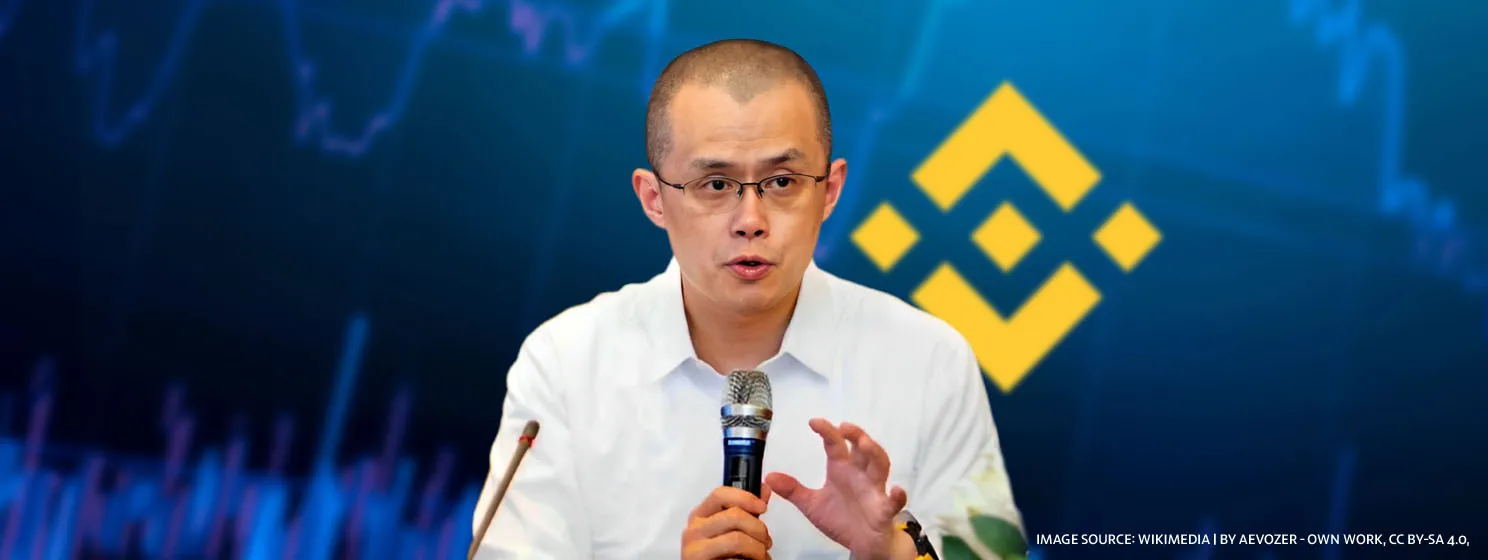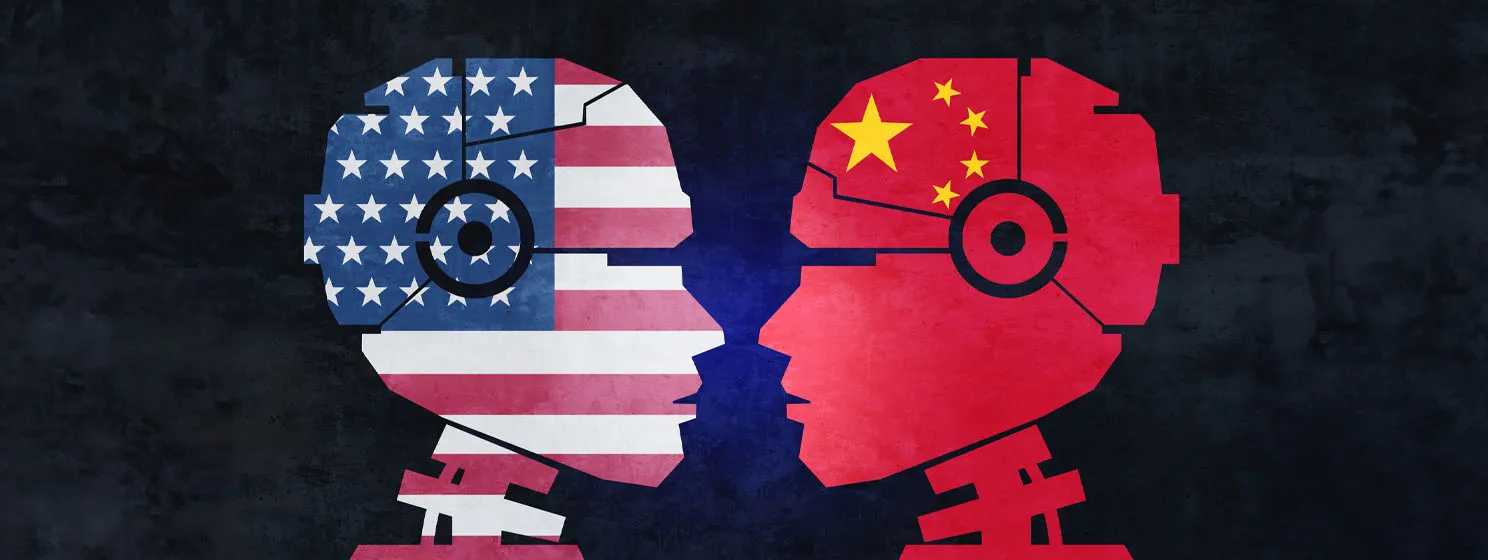|
Getting your Trinity Audio player ready...
|
Binance’s founder Changpeng ‘CZ’ Zhao is becoming a global adviser for governments looking to boost their digital asset understanding, despite his criminal conviction for ignoring the rules of other governments.
- CZ’s world tour rolls on
- Binance asks court to turf Nigeria’s demands for billions
- Binance boosts payment processing options
- Wallet staffer caught insider trading
- Market makers making money the easy way
On April 7, Pakistan media reported that Binance’s former CEO CZ had been named a strategic advisor to the Pakistan Crypto Council (PKK). The PKK was recently established to explore a number of digital asset efforts, including boosting blockchain-based remittances by Pakistani nationals working abroad.
The appointment followed CZ’s meeting with Pakistan’s Prime Minister and Deputy Prime Minister, plus a separate meeting involving the Chairman of the Securities and Exchange Commission of Pakistan, Governor of the State Bank, and Federal Secretaries of Law and IT.
That latter meeting was chaired by Senator Muhammad Aurangzeb, the federal finance/revenue minister, who called CZ’s appointment “a historic moment” for the nation and “a clear message to the world that Pakistan is ready to innovate.” Bilal bin Saqib, an Aurangzeb adviser and CEO of the PKK, was similarly enthused, asking “who better than CZ to guide us on this journey?” (That really depends on where exactly you hope to end up.)
The PKK CEO laid it on even thicker on X, tweeting that the nation was “not just welcoming a man, we are welcoming a movement.” CZ tweeted his thanks, adding that Pakistan’s “potential is limitless” given its population of 240 million, nearly two-thirds of whom are under 30 years of age.
In January, Binance signed on as the Official Exchange Partner of cricket squad Islamabad United (IU), the most successful franchise in the Pakistan Super League. Binance unveiled branded IU jerseys this week, alongside a promotion in which Binance traders can win VIP match tickets, signed merch and other rewards.
CZ’s Pakistan trip followed an announcement by Sadyr Zhaparov, President of Kyrgyzstan, that the country’s National Investment Agency had signed a Memorandum of Understanding with CZ “to cooperate in the development of the cryptocurrency and blockchain technology ecosystem in the Kyrgyz Republic.”
This cooperation will include “providing infrastructural, technological support, technical expertise, and consulting services on cryptocurrencies and blockchain technologies, as well as implementing educational initiatives.” Zhaparov called CZ “a leading expert in the field of cryptocurrency and blockchain technologies.”
Okay, but CZ is also a convicted felon who spent four months in a U.S. federal prison last year for violating America’s anti-money laundering laws. CZ and Binance reached a $4.3 billion settlement with U.S. authorities in November 2023 to atone for the exchange’s years-long defiance of American law, including providing a platform for money laundering, sanctions evasion, and terrorist financing.
While CZ is reportedly seeking a pardon from United States President Donald Trump, his felonious legacy doesn’t appear to be deterring governments from leaning on his knowledge of the digital asset space. But not all governments have fallen for CZ’s diplomatic charms.
Next time try Binance’s MySpace page
This week, the Nigerian federal high court in Abuja postponed Binance’s tax evasion trial until April 30 to allow Nigerian prosecutors time in which to explain an embarrassing and amateurish gaffe.
If you’ve been under a rock, Binance became persona non grata in Nigeria a year ago after the government accused the exchange of facilitating the manipulation of foreign exchange rates. That was followed by the detention of two Binance execs, one of whom skipped bail and fled the country, while the other—U.S. citizen Tigran Gambarayan—spent eight months in a Nigerian prison and was only released last November.
While Nigeria dropped some tax fraud charges against Binance, the Economic and Financial Crimes Commission (EFCC) is demanding $35 million to resolve charges of money laundering. The legal issues found an even higher gear in February, when the Federal Inland Revenue Service (FIRS) sued Binance for $81.5 billion ($79.5 billion for damaging Nigeria’s economy plus $2 billion in back taxes).
On April 7, Binance attorney Chukwuka Ikwuazom asked Justice Inyang Ekwo, the judge overseeing the suit, to invalidate the $81.5 billion penalty. Ikwuazom claimed FIRS attorneys had (a) informed Binance of the penalty via email in violation of Nigerian rules for serving court documents to individuals/entities based abroad, and (b) sent the email to the wrong address.
The email was sent to [email protected], although the real Eleanor Hughes doesn’t hyphenate her email and spells her surname with two H’s. Worse, the erroneous email doesn’t appear to exist, meaning it should have bounced after FIRS sent it. FIRS also failed to CC other members of Binance’s legal team, effectively ensuring that Binance attorneys didn’t know a court hearing had been scheduled until they read about it in media reports.
Ikwuazom further argued that the FIRS had failed to apply for court permission to perform ‘substituted service’ on Binance. The Binance division in question is registered in the Cayman Islands and lacks a Nigerian office, making it a foreign entity not subject to standard Nigerian court procedures.
FIRS counsel Kanu Agabi told Justice Ekwo that FIRS had only received the Binance motion to invalidate on the morning of the hearing and thus he needed more time to prepare the FIRS response. Binance attorney Ikwuazom apologized to Ekwo for the fact that the Binance motion hadn’t yet been filed with the court. In the end, Ekwo gave the FIRS until the end of the month to respond to the motion.
Pay to play
In less controversial news, Binance has struck a deal with payment processor WorldPay to allow Apple Pay and Google Pay users to purchase digital assets from Binance using credit or debit cards linked to those two wallets. Binance claims the deal is “part of a movement that pushes the boundaries of who can participate in crypto and how easily they can do so.” And how easily customers can kiss their fiat buh-bye during the next crypto rug pull, but we’ll let Binance have their moment.
That announcement followed Binance announcing that USDC, the stablecoin issued by Circle, was now the default currency for users of its Binance Pay service. This will allow Binance Pay users to send/receive USDC without ‘gas’ fees, while allowing merchants to more easily accept USDC-based payments.Binance and Circle struck a ‘strategic partnership’ last December to accelerate the use of USDC and overall crypto adoption. However, the prospectus filed last week by Circle ahead of its planned initial public offering revealed that Circle paid Binance $60.25 million upfront to secure that partnership. Circle also pays Binance a “monthly incentive fee” based on how many billions in USDC Binance holds “on its platform and in its treasury.”
The partnership came after Binance appeared to give the cold shoulder to USDT, the market-leading stablecoin issued by Circle rival Tether. While USDT remains available on Binance Pay, Circle has proven much more eager to seek regulatory approval for USDC than Tether has for USDT, and Binance is at least attempting to look regulatory-friendly following its U.S. settlement.
Binance Wallet staffer had his hand in yours
Speaking of crooks, Binance disclosed last month that it had “suspended” a Binance Wallet staffer who allegedly profited off inside information about a project’s upcoming token launch.
On March 24, Binance announced that its Internal Audit team had responded to a complaint that a Wallet staffer “engaged in front-running trades using insider information to gain improper profits.” The subsequent investigation revealed that the staffer “used multiple linked wallet addresses to purchase a large volume” of tokens issued by the project ahead of its token generation event (TGE) announcement. While Binance didn’t name the project, digital sleuths pointed to the UUU memecoin.
The staffer “previously held a business development role” at the exchange’s in-house BNB Chain (sometimes referred to as Binance Smart Chain) before joining the Wallet team one month prior to the incident. Using non-public info from his biz-dev days, the staffer amassed the project’s tokens, then “quickly sold part of his holdings to realize significant profits.”
Binance said the suspended staffer could face “further disciplinary action,” adding that the exchange would “proactively cooperate with the relevant authorities in the employee’s jurisdiction and take appropriate legal action in accordance with applicable laws.” Binance also split a $100,000 reward between four whistleblowers who submitted valid reports regarding the insider trading.
Binance has been hit with insider trading allegations before—including those involving new token listings—but rarely has its response been so public. Perhaps those transaction monitors Binance was required to onboard following its U.S. settlement are actually causing Binance to forego its usual ‘whatcha gonna do’ shrug-and-bear-it routine.
Market mocking
Binance has also dealt with rogue market makers manipulating token prices for their personal profits. This includes DWF Labs, which historically generated at least $4 billion in monthly trading volume on the exchange.
In DWF’s case, Binance reportedly fired the internal investigators who blew the whistle on the market maker’s antics, which were said to involve $300 million in wash trading. Binance denied the reports at the time, but these wash trades occurred in 2023, before the U.S. transaction monitors were in place.
Fast forward to March 9, when Binance issued a cryptic announcement that it had “offloaded” a market maker due to unspecified “market irregularities” involving the GoPlus Security (GPS) and MyShell (SHELL) projects. Binance said it had “confiscated proceeds” from the market maker in order to compensate GPS and SHELL users and banned the market maker from conducting further business on the exchange.
On March 25, Binance announced that it had identified a market maker affiliated with the Movement (MOVE) token project that had an “association” with the GPS/SHELL market maker. This other market maker—unidentified by Binance but others sleuthed it out—had sold around 66 million MOVE tokens on a single day last December “with little buy orders,” resulting in a profit of $38 million worth of USDT. Here again, Binance froze the proceeds, banned the market maker and vowed to compensate impacted users.
So has Binance really turned over a new transparency leaf or were these particular crimes just so brazen that the exchange felt compelled to fire a shot across the bow of their exchange partners? Is Binance suddenly concerned about its image now that its former CEO and still majority shareholder CZ is angling for a presidential pardon?
Dude, just pay the man and don’t worry about the rest. Haven’t you heard? This shit is basically legal now.
Watch: Teranode is the digital backbone of Bitcoin

 05-03-2025
05-03-2025 





